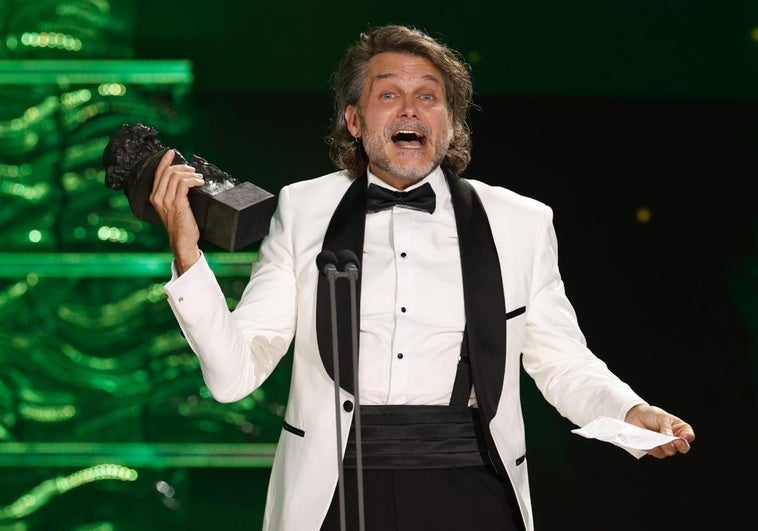
Malaga's Salva Reina wins Spanish film academy award for Best Supporting Actor in La 47
Director Marcel Barrena's movie collected five awards at the Goya ceremony in Granada, while sharing first place with Undercover in a historic tie for Best Film
The night of the 39th Goya ceremony, Spain's academy film awards, on 8 February kicked off on a high note. The event was held in the city of Granada and opened with the Granada-inspired rendition of Bienvenidos, a classic by local singer Miguel Ríos.
Then came time for the first award - Best Supporting Actor. Two Malaga-born actors - Salva Reina with his role in The 47 (El 47) and Antonio de la Torre with Glimmers (Los Destellos) - competed for the first place. As a token of respect, De la Torre told newcomer Reina: "I hope you win it." He got it right, as a very emotional Salva Reina went up on stage to receive his award, after embracing his partner, Kira Miró, and actor Antonio Banderas.
That was far from the only award The 47 went home with on Saturday night. The film about a neighbourhood of migrants from the south of Spain in Barcelona, directed by Marcel Barrena, triumphed with the greatest number of awards. However, when it came to the award for Best Film, it had to share the first place with Arantxa Echevarría's Undercover (La Infiltrada), which will be recorded as a historic tie.
The name of the character that earned Salva Reina his first Goya is Felipín - a Malaga-born migrant in 1960s Catalonia. To prepare for the role, Reina drew inspiration from a great-uncle of his from Pizarra, whom the actor described as a "humble, honourable, brave and powerful countryman" with an affinity for reciting poetry.
The role of Felipín encompasses the fight for social justice of those two million Andalusians who emigrated and suffered. Now, the film has made their story more visible than ever. In his speech, Reina stated that history repeats itself, drawing a parallel with the present: "No person is illegal."
Using the time he had on stage, Salva Reina tried to name everyone he could from the film and those who have helped him in his career, addressing a special dedication to Malaga.
"Dad and mum, you are my favourite superheroes," said the actor, while congratulating his mother on her birthday and giving a nod to his father - keeper of Reina's awards and 'tailor' of the clothes he dresses them up in. "Go get one for this one," said Reina.
"Dad and mum, you are my favourite superheroes," said an ecstatic Salva Reina, holding the Goya in his hands
The actor also gave a special moment of recognition to the "family of La Cochera" (Cabaret) - his stage space in Malaga - and to Antonio de la Torre. Finally, he extended a dedication to Luis San Narciso and the casting directors for giving an "opportunity" to that "80% of actors who are eager to prove that they are ready".
Reina's words were a testimony to the actor's roots on the comedy stage, and his humility, despite winning the Goya for a dramatic character after years of growth. Of course, Salva Reina did not turn his back on humour, as he got on stage with the words: "Esto que polla es" ("What the hell is this").
Salva Reina's co-star in The 47, Clara Segura, won the Best Supporting Actress award. Another cast member of the film - Eduard Fernández - won the award for Best Actor, although it was not for Barrena's film, but for Aitor Arregi and Jon Garaño's Marco, the Invented Truth (Marco), where he plays the man who passed himself off as a Spanish victim of the Nazi concentration camps - a man that the Catalan actor tried to understand in order to step in his shoes.
"He alerted us to the danger of fascism or of an ambiguous salute," he said in another example of a parallel with the present reality, where we recently witnessed Elon Musk's gesture.
Antonio Banderas presented the international award to Richard Gere, who referred to Spain as his new home
Although The 47 was the unequivocal star of this year's Goya, the awards were actually evenly distributed. Undercover picked up two awards, with Carolina Yuste winning Best Actress for her role as a police officer who infiltrates the ETA terrorist group. The only previous instance of a tied award at the Goyas dates back to 1991, in the Best Documentary Short category, when Blanco o Negro and El Viaje del Agua shared the prize.
Two films won three prizes. Two of the awards that Almodóvar's The Room Next Door (La Habitación de al Lado) won were those of Best Screenplay and Best Original Music, thanks to composer Alberto Iglesias, who broke his own record as the person the most Goya awards, 12 in total.
The film about the Granada band Los Planetas - Saturn Return (Segundo Premio in Spanish) also went home with three awards. The film, which was already the winner of the Biznaga de Oro at Malaga's film festival last year, was awarded for Best Director (Isaki Lacuesta and Pol Rodríguez), as well as for sound and editing. Lacuesta dedicated the award to his daughter Luna, who died after the shooting of the film.
Cancellation and scorn
One Malaga production had fewer chances on Saturday night - the short documentary Ciao Bambina by Afioco Gnecco, starring actress Carolina Yuste, who was awarded for Undercover. The film narrates the transition of Rafaella to become Rafael, a journey that reflects on man and his role in today's society. Produced by the Malaga-based association Apoyo Positivo, this socially engaged work ultimately lost to Semillas de Kivu, a film focused on environmental conservation.
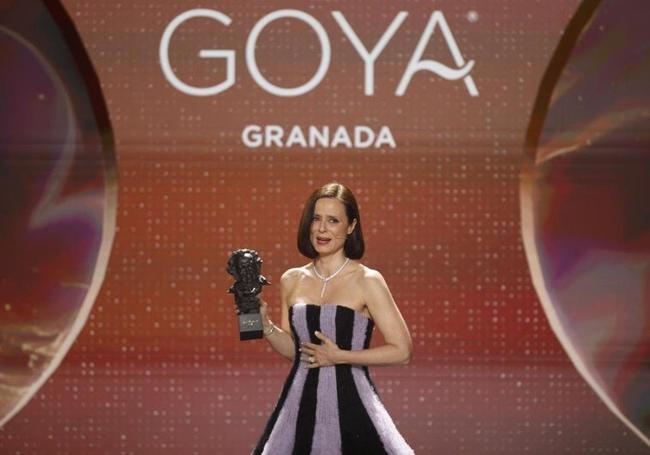
Zoom
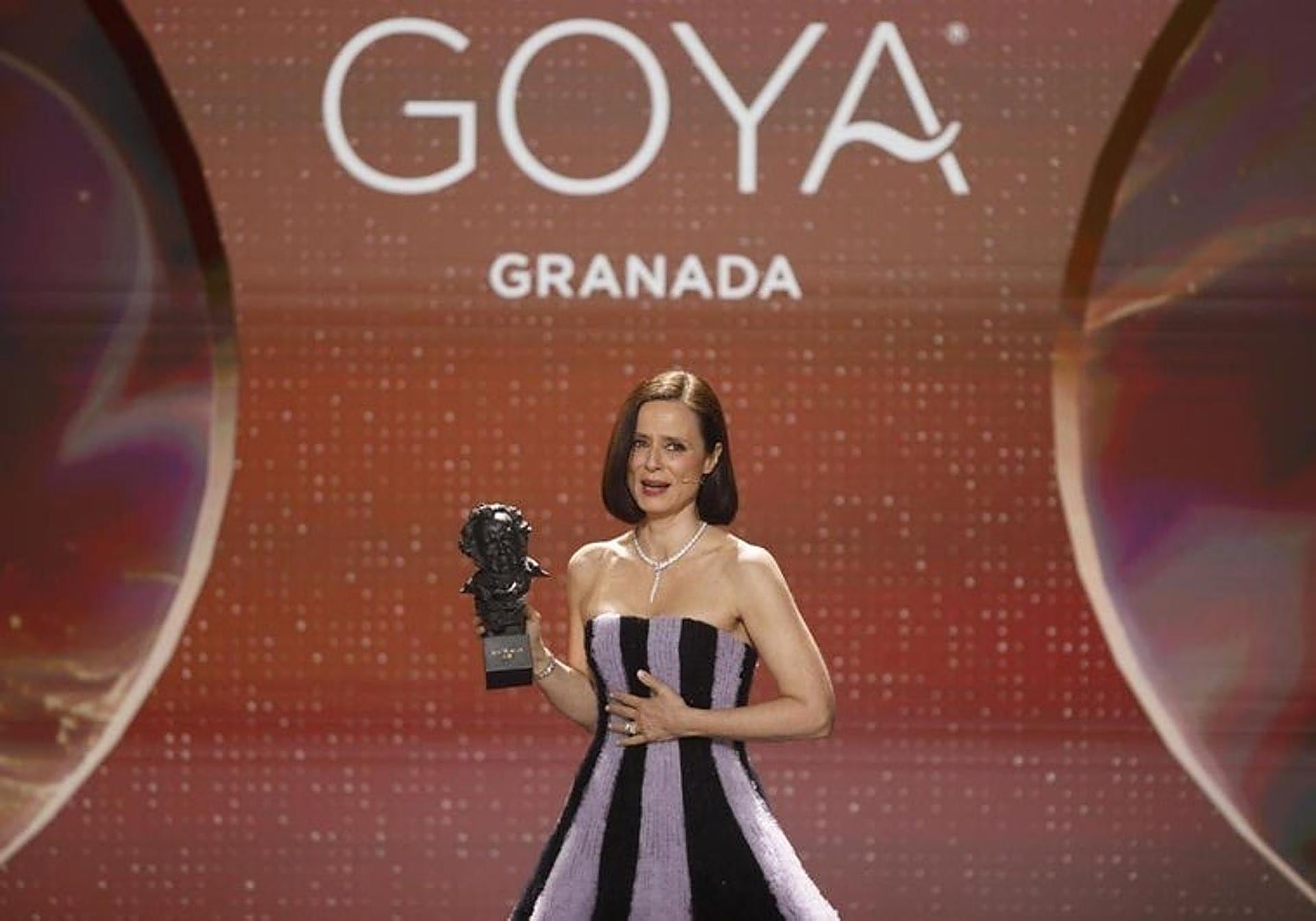
The red carpet was a place of a lot of questions, regarding the absence and cancellation of actress Karla Sofía Gascón for her unfortunate tweets. However, there were no messages of support or censure at the gala until the film Emilia Pérez won the award for Best European Film. While the film’s distributors had opted for Gascón not to attend the ceremony to collect the award, they defended that "in the face of hate and ridicule, we need more cinema and more culture".
Speeches and translation
As expected, accepance speeches went on for too long. Inspired by the presence of PM Pedro Sánchez and president of the Junta de Andalucía, Juanma Moreno, there was no shortage of political and social mentions at the gala, such as the heartfelt tribute to the victims of the 'Dana' disaster.
There was also talk of the right to housing, climate urgency and the situation in Gaza, which was mentioned by the winner of the Goya of Honour, Aitana Sánchez Gijón, who appeared on stage to one of the loudest applauses of the night. In her speech, she honoured the recently deceased actress Marisa Paredes and director Patricia Ferreira, who paved the way for women in the film industry, where they were once "banned". "It's about time, comrades," said Sánchez Gijón.
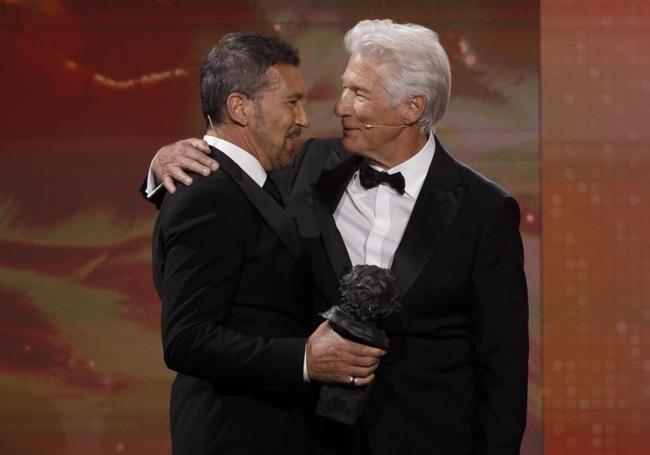
Zoom
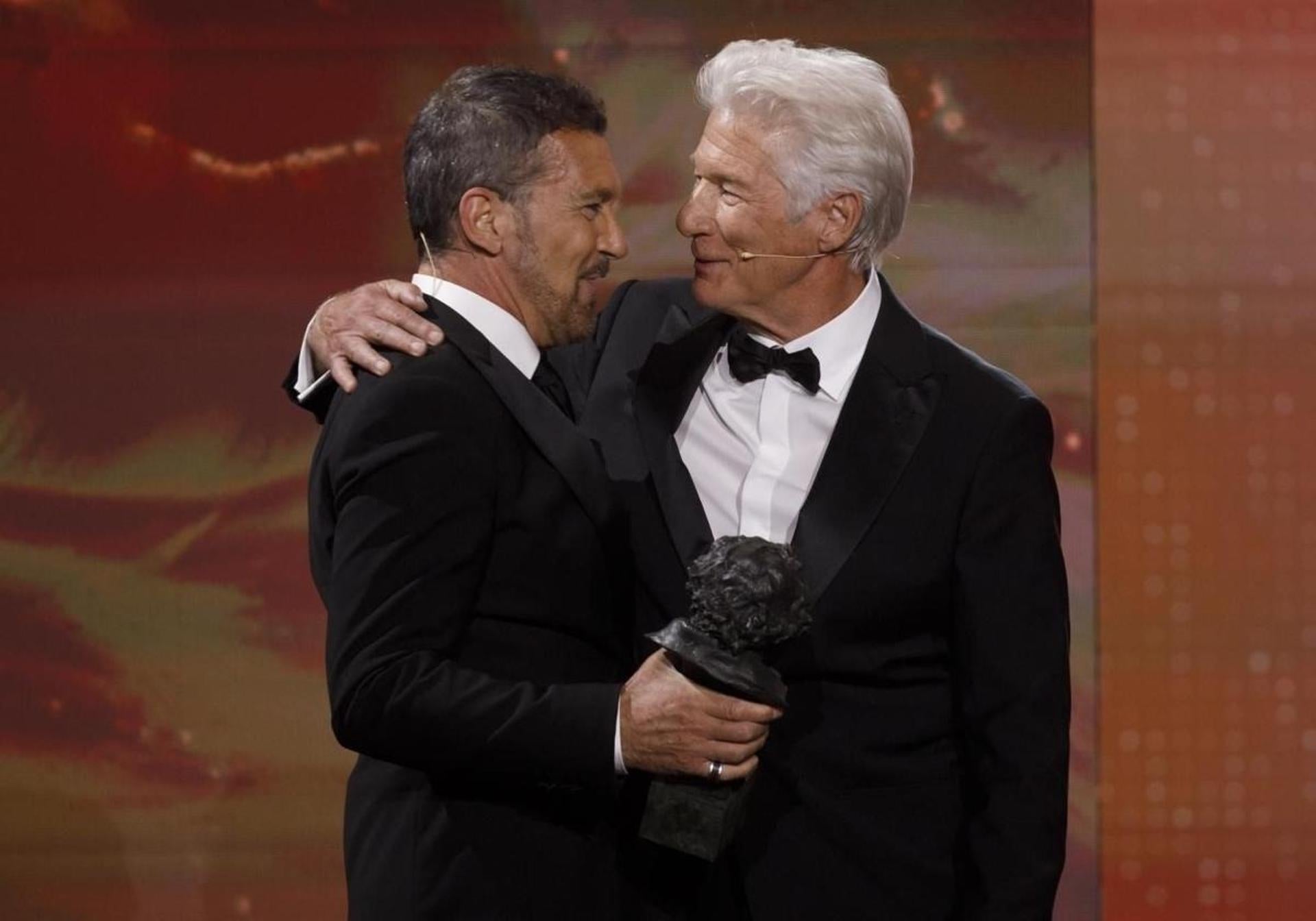
The other endless applause was for Richard Gere, who was presented with the International Goya by his "friend" Antonio Banderas. Instead of a translator, the production opted for subtitles that seemed to be generated by AI and which, in addition to being deficient, lagged at times.
Nevertheless, his message regarding the dark place in which his home country, the USA, and the rest of the world are at this moment remained clear. He thanked his wife, Spanish publicist Alejandra Silva, for making Spain his new home.
Marisa Paredes, who died last year, was also celebrated in her own tribute, with her daughter, actress María Isasi recalling the strength and courage of the "teacher" who was both an immense actress and, most importantly, "the most spectacular mother you could have".
